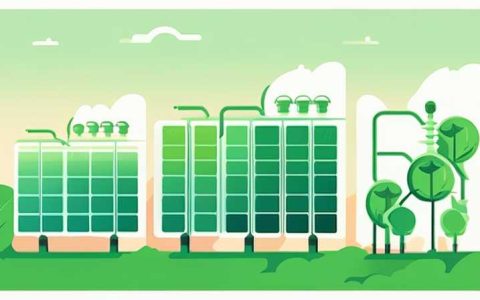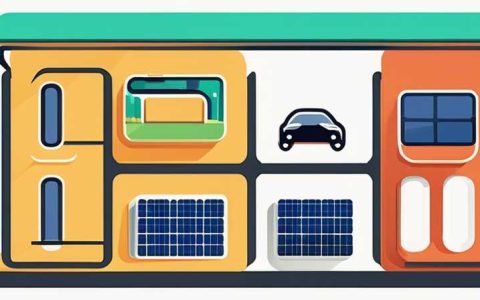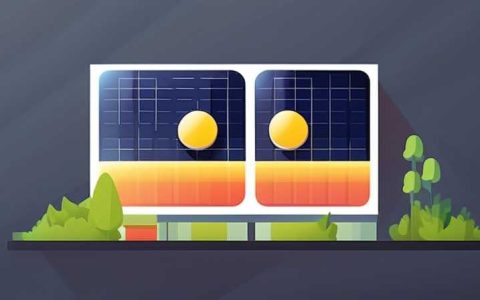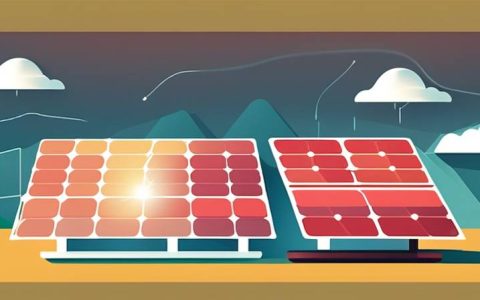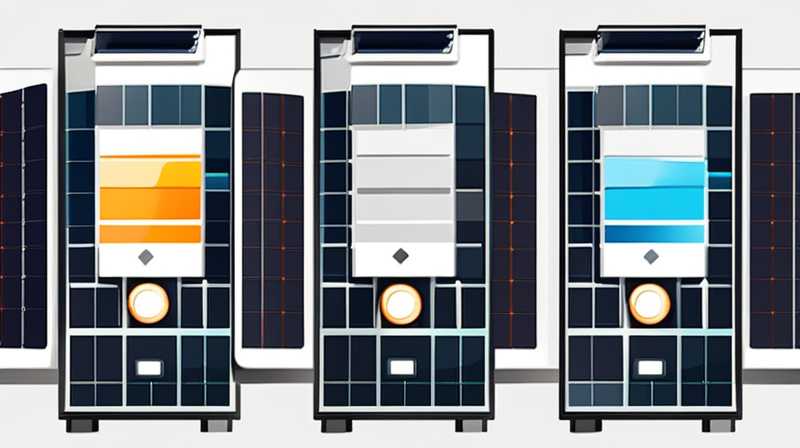
When selecting the appropriate voltage for solar photovoltaic panels, several crucial factors must be considered, including 1. System Design Requirements, 2. Panel Efficiency, 3. Local Regulations, 4. Compatibility with Inverters. The design of the solar energy system dictates whether higher or lower voltage panels will be more beneficial. Higher voltage panels often exhibit greater efficiency at long distances, reducing energy loss over the wiring. Conversely, regulations in certain locales may impose restrictions on voltage levels, and ensuring compatibility with existing inverters is vital for operational efficiency. Analyzing these points in detail is essential for optimal decision-making.
1. SYSTEM DESIGN REQUIREMENTS
When embarking on the journey of selecting appropriate photovoltaic panels, a comprehensive assessment of system design requirements plays a pivotal role in determining the optimal voltage. Solar photovoltaic systems can vary widely in configuration, from smaller residential setups to expansive commercial installations. Each of these configurations demands specific voltage levels that align with the overall energy output goals. High-voltage systems tend to transmit energy more efficiently over long distances due to reduced current flow, which subsequently minimizes resistive losses inherent in wiring.
Moreover, energy demands and site conditions significantly influence voltage selection. Areas with considerable shading or those located farther from the main energy consumption points may benefit from a higher voltage setup, which can avoid losses. In contrast, systems designed for close proximity to energy usage may efficiently operate at lower voltages. Hence, aligning voltage selection with the unique requirements of the installation ensures maximized system performance and longevity.
2. PANEL EFFICIENCY
An additional critical element influencing voltage choice for photovoltaic panels is the inherent efficiency of the panels themselves. Solar panel efficiency is a measure of how well a photovoltaic cell converts sunlight into usable electricity. Higher voltage panels typically offer better efficiency, justifying the upfront investment, particularly in designs where space is constrained. Efficient panels contribute to faster energy generation and allow for a smaller footprint, which can be essential in urban settings where real estate is valuable.
Furthermore, manufacturers often provide detailed specifications indicating the performance characteristics of each voltage class. Understanding the specific performance curves of solar panels at various operational voltages helps in selecting the most suitable option. Continuous advancements in panel technology mean that efficiency ratings can vary significantly between different manufacturers and models. Therefore, conducting thorough research on available products ensures that the chosen panels align with the expected performance outcomes.
3. LOCAL REGULATIONS
Navigating local regulations is integral to the planning process of a solar photovoltaic installation—particularly concerning voltage parameters. Each region or locality may have specific codes, ordinances, and guidelines governing the installation and operation of solar energy systems. These regulations may impose limits on voltage levels, especially in densely populated areas, which can substantially affect safety protocols and wiring practices.
Understanding these local codes prevents future complications and ensures compliance from the onset of the project. It is prudent to consult with local authorities or industry experts who can provide insights into these regulations. In some instances, deviations from established voltage guidelines could lead to penalties or a requirement for modifications, further complicating the installation process. Therefore, knowledge of local regulations is vital for both operational efficiency and regulatory compliance.
4. COMPATIBILITY WITH INVERTERS
The selection of solar panels hinges significantly on harmonizing the voltage with the types of inverters utilized in the system. Inverters serve as the interface between the solar panels and the grid or energy storage devices, and their operational efficiency is often dictated by the voltage range of the associated photovoltaic panels. It is crucial to ensure that the selected panels operate optimally within the inverter’s specific voltage range to maximize overall system performance.
Incompatibility between panels and inverters can result in losses or even equipment malfunction. For instance, using high-voltage panels with an inverter designed for lower voltage may lead to inadequate energy conversion and diminished efficiency. Therefore, analyzing the specifications of both the panels and the inverters is paramount to ensure a cohesive energy generation system that operates effectively and efficiently.
FREQUENTLY ASKED QUESTIONS
WHAT IS THE IDEAL VOLTAGE FOR RESIDENTIAL SOLAR PANELS?
The ideal voltage for residential solar panels generally falls within the 24-48 volt range. This voltage allows homeowners to effectively harness solar energy while ensuring compatibility with most residential inverters and battery storage systems. Additionally, systems designed around this voltage tend to exhibit improved performance in energy conversion, especially in setups that utilize battery storage solutions. A voltage within this range makes it easier to integrate various components effectively, ensuring a seamless operation. It’s pertinent to consult with solar specialists in your area to determine the most appropriate voltage based on specific energy requirements and environmental conditions before finalizing any decisions.
HOW DOES VOLTAGE IMPACT SYSTEM EFFICIENCY?
Voltage significantly influences the overall efficiency of a solar photovoltaic system. Higher voltage panels generally experience lower current flow, which means reduced resistive losses in the wiring. The integration of high-voltage systems minimizes power losses over long distances, making them especially advantageous for larger installations. Conversely, low-voltage systems may be easier to manage and maintain but can be less efficient over significant distances and potentially lead to greater energy losses. Therefore, choosing the right voltage not only impacts the performance of the solar system itself but also its long-term viability and energy output. Balancing the initial investment with expected returns requires a thorough understanding of these dynamics.
CAN I MIX DIFFERENT VOLTAGE PANELS IN A SOLAR SYSTEM?
Merging different voltage panels in a single solar energy system is highly discouraged due to potential complications and inefficiencies. Each panel operates optimally within its designated voltage range; combining panels of different voltages can lead to inconsistent performance, reduced power generation, and increased chances of equipment failure. This mismatch creates scenario for current flow discrepancies, which may ultimately damage panels or inverters. To maintain the reliability of the system and ensure high-energy yield, it’s vital to standardize panel voltages across the installation. If a varied setup is deemed necessary, working with a qualified professional to design the system can mitigate possible issues.
FINAL THOUGHTS
Choosing the correct voltage for solar photovoltaic panels is a multifaceted decision that necessitates in-depth consideration of several factors such as system design requirements, panel efficiency, adherence to local regulations, and compatibility with inverters. With the landscape of solar power constantly evolving, staying abreast of recent advancements while aligning with specific application needs is crucial for maximizing energy solutions’ effectiveness. Each component plays a vital role in the overall functionality of the system, underscoring the importance of a holistic approach during the planning phase.
Investing time in research, seeking guidance from professionals, and gathering insights on current regulations can significantly influence the integrity and output of solar energy systems. The right voltage selection not only optimizes performance but also ensures sustainability and adaptability. Therefore, as potential adopters of solar energy contemplate their selections, they will surely enhance potential returns on investment, without compromising reliability or safety. Implementing a solar photovoltaic system founded on careful considerations will yield significant benefits for both personal and environmental considerations. The future of energy independence and sustainable living significantly leans on these thoughtful choices made today.
Original article by NenPower, If reposted, please credit the source: https://nenpower.com/blog/how-to-choose-the-voltage-of-solar-photovoltaic-panels/


